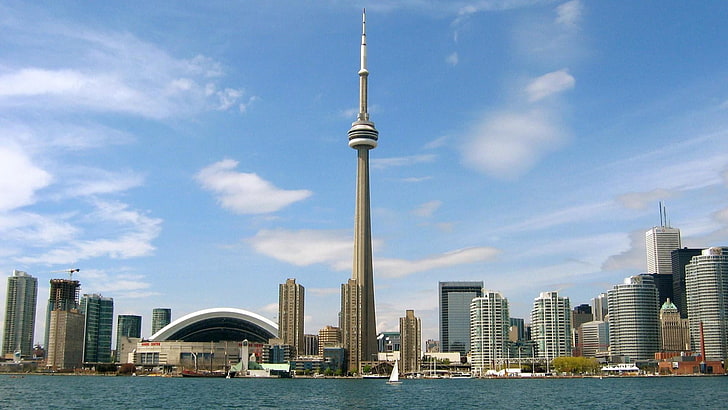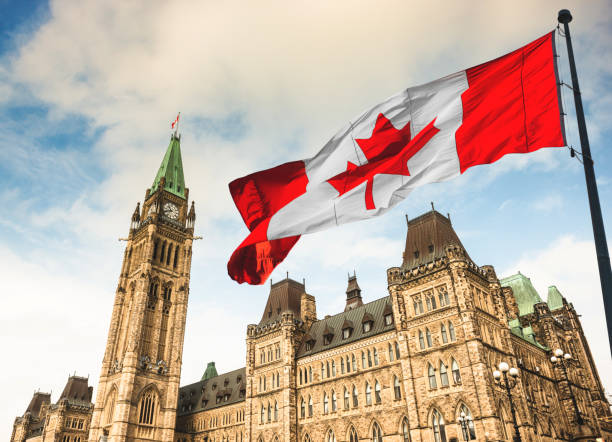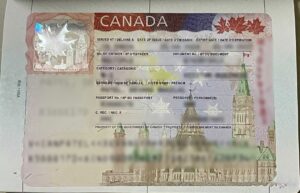Country Details
The Canada
Canada Tourism: A Land of Natural Beauty and Vibrant Cities
Canada is one of the world’s top travel destinations, offering a perfect blend of breathtaking natural landscapes, diverse cultures, and modern city experiences.
Canada is known for its stunning natural beauty. The country is home to spectacular national parks, such as Banff and Jasper in Alberta, where visitors can witness towering mountains, turquoise lakes, and abundant wildlife.

Why choose us?
Top Locations
Canada’s educational landscape shines with a constellation of top-tier universities that have garnered global recognition for their academic prowess, research contributions, and commitment to innovation.

- University of Toronto
- University of British Columbia
- University of Montreal
- University of Waterloo
- Queen's University
Canada Visa Information
Visa Type: Sticker
Length of Stay: 180 days
Validity: 10 Years
Entry: Multiple
General Information
Do Indians need a visa for Canada?
Yes, Indian citizens must have a valid visa to visit Canada. They can apply for a Canada visitor visa for short-term tourism, leisure or social visits, allowing them to stay for up to 6 months.
How long does it take to process the Canadian tourist visa?
The visa processing time for a Canada visa generally takes 5-6 weeks. However, this time frame varies depending on multiple factors and can be extended. Some factors that affect the processing time include:
Number of applications.
The complexity of your application.
Public holidays.
Previous criminal records or visa violations.
How long can I stay in Canada with a tourist visa?
A Canadian tourist visa allows you to stay in Canada for up to 6 months per visit. However, the Canadian border services officer will determine the exact duration of your stay when you arrive. The officer will stamp your passport, indicating how long you can stay. If they do not specify a date, you are allowed to stay for the full 6 months.
What are the types of Canada visas for Indians?
There are various types of Canadian visas Indians can apply for. Some of the common types include the following:
Visit visa: The visit visa allows you to enter Canada for various reasons, such as visiting friends or family, doing business, having leisure, and more.
Transit visa: If you travel through Canada and use one of its airports for a layover lasting less than 48 hours, you must apply for a transit visa. If your layover is longer than 48 hours, you must obtain a visit visa.
Work visa: Indians who want to work in Canada can apply for a work visa, which allows them to pursue paid employment.
Study visa: Indian citizens can apply for a long-term student visa if they plan to study in Canada at a designated learning institution.
Eligibility & Requirements
To be eligible for a Canada visitor visa, you must:
Have a passport that is valid for the entire duration of the intended stay in Canada.
Have no past criminal convictions or immigration violations.
Show strong ties to your home country, such as family or job commitments.
Have enough money to fund the intended stay in Canada.
Provide convincing proof of return to India at the end of your visit.
Here is the list of documents required to apply for a Canada visa from India:
Passport (current and old): A scanned copy of the front and back pages of your passport, including all visas and stamps. Ensure your passport is valid for the entire duration of your stay in Canada. Also, submit copies of previous passports, if available.
Previous visas: Include copies of any previous USA or Canada visas, if applicable.
Photograph: A recent passport-sized photograph (35 x 45 mm) on a plain white background, meeting the Canada visa photo requirements.
Identity proof: You will be required to submit copies of your Aadhar and PAN card.
Family Information Form: Every applicant who is 18 years old or above must download and fill out the Family Information Form (IMM5645).
Proof of travel: Submit documents showing your travel plans, such as flight tickets and hotel reservations.
Proof of funds: Submit the bank statements from the last 6 months and the last 3 months’ ITR to prove you have enough money to support yourself during your stay in Canada. You can also include documentation for any fixed deposits, mutual funds, equity, or other investments you have, if applicable.
Proof of employment: Also, submit your employment records. If employed, submit your offer letter, NOC from the employer, last 3 month’s salary slips and the last 6 months’ bank statement of salary account (if applicable). If you are self-employed, submit the GST Certificate and the last 3 months ITR.
While the Canadian government mentions no specific bank balance requirement for a tourist visa, it is crucial to demonstrate that you have sufficient funds to cover your stay in Canada. This includes expenses for accommodation, food, transportation, and other personal costs. The exact amount may vary depending on factors such as the duration of your stay, the number of people travelling with you, and the activities you plan to undertake.
No, travel insurance is not a requirement when applying for a Canada visa. However, it is recommended that you have it when travelling abroad. Insurance can cover you against lost luggage, unplanned trip cancellations, and unexpected emergencies.
If you have a criminal record, you may still be eligible to enter Canada depending on the crime, how long ago it occurred, and your behaviour since then. Your options include:
Deemed rehabilitation: If enough time has passed since your conviction, you may be deemed rehabilitated and no longer barred from entry.
Individual rehabilitation: Apply for rehabilitation if you can prove you’re unlikely to re-offend. This option is available if at least five years have passed since the end of your sentence.
Record suspension: If you have a record suspension (pardon) from Canada or another country, you may not be inadmissible.
Temporary resident permit: If you don’t qualify for rehabilitation, you can apply for a Temporary Resident Permit for entry despite your record.
Tip: Start the process early, as applications for rehabilitation can take over a year to process.
Application Process
Indians must start the Canada tourist visa application online and then complete it at the visa application centre by submitting biometrics. Here is what the entire process will look like:
Gather the documents: Before beginning the visa application process, collect all necessary supporting documents such as passport, proof of funds and travel plans.
Complete the application form: Visit the IRCC website and sign in to fill out the online Canada visa application form.
Submit the application: Pay the Canada visa fee to submit the application. After submission, you will receive an acknowledgement receipt from IRCC confirming that your application has been received.
Receive Biometrics Instruction Letter (BIL): After submitting your visa application, IRCC will send a Biometrics Instruction Letter (BIL) via mail containing details on how to book an appointment for biometric data collection.
Attend your biometrics appointment: On the appointment day, carry your BIL and passport and provide biometric data (fingerprints and a photograph). Once biometrics are completed, the Canadian immigration authorities will assess your application. If additional information or verification is required, IRCC may request additional documents or an interview.
Receive visa approval: Once your visa is approved, you’ll receive a passport collection letter for submitting your passport to get the visa stamp. Once processed, your passport will be returned with the visa stamp.
After your Canada visa gets approved, you must collect it from the visa application centre. It will be placed on your passport as a sticker. Here is a sample of the Canada visitor visa:

No, an interview is not mandatory when applying for a Canada visa. However, authorities might request one to clarify your application.
If you are asked to attend an interview, be prepared to answer the following questions:
Travel purpose to Canada: Visa officers will ask about your reason for visiting, such as tourism, business, or family, to ensure it matches the visa type and to understand your plans.
Employment status: Your job situation helps officers assess if you can financially support yourself during your stay and also serves as a clue to your ties and stability in India.
Ties to India: Expect questions about family, property, or investments in India. These help demonstrate your strong connections back home and your intention to return after your visit.
Previous visa violations: Expect questions about family, property, or investments in India. These help demonstrate your strong connections back home and your intention to return after your visit.
Criminal records: You will be asked about whether you have a criminal history to ensure you meet the legal requirements for a visa and pose no security risk to Canada.
Note that you must still visit the application centre to submit your application and provide your biometric information.
Yes, you must submit your biometric information at the visa application centre. Biometric information involves collecting and analysing personal physical traits, such as fingerprints and facial features. This process helps verify your identity and ensures your visa application is secure.
Your biometrics are also taken upon entry to verify that your approved visa matches your identity.
Indians can apply for a Canada visa through Atlys by following these steps:
Visit Atlys: Start by visiting the Atlys website or app and selecting the Canada visa option for Indians.
Submit documents: You can upload essential documents, including your passport, photos, and any other required visa documents, directly from your device.
Pay the visa fee: Follow the on-screen payment instructions to complete the fee payment for your visa.
Receive expedited appointment: Atlys will schedule your visa biometric appointment for the earliest available slot and send you your finalised appointment dates.
Attend your biometric appointment: On the scheduled date, visit the visa application centre (VAC) to submit your biometrics (fingerprints and photo) and any additional documents if required.
Wait for visa processing: After you complete the biometric appointment, the Canadian authorities will process your visa application.
Collect your visa: Once approved, you can either have your visa and passport delivered to your home or collect them in person from the visa application centre.
Add multiple travellers: On Atlys, you can easily include co-travellers, such as friends and family, in a single application. This feature streamlines the process, saving you time and effort when applying for multiple visas simultaneously.
Simplified application: Atlys’s user-friendly platform allows you to confidently start the Canada visa application in a few easy steps.
Expedited appointment date: Waiting for a Canada visa appointment can be a lengthy process. However, with Atlys’s professional service, you will receive an expedited visa appointment date.
Quick processing: Atlys ensures your visa is processed and delivered on time. We work efficiently to meet your travel deadlines so you can focus on planning your trip rather than worrying about visa delays.
Tailored visa guidance: Atlys provides personalised guidance based on your specific visa requirements. Whether you need a tourist, business, or family visa, the platform tailors the application process to meet your unique needs, ensuring that you submit the right documents and information for a successful application.
Entry & Exit Regulations
No, you cannot convert a visit visa into a work visa. However, you can apply for a work permit on a visit visa in Canada.
To apply for a work permit in Canada, you must meet the following requirements:
A valid visitor visa will be required on the day of your application.
You must have a job offer from a labour market impact assessment (LMIA) or an LMIA-exempt offer of employment.
Your application must be submitted before 28 February 2025.
Meet all the standard admissibility criteria.
No, a Canada tourist visa does not allow you to work or study in Canada. The tourist visa is strictly for short-term visits, such as tourism, visiting family or friends, or conducting business meetings. To work or study in Canada, you must apply for the appropriate visa, such as a work permit or study permit. Engaging in employment or studies on a tourist visa is against the visa conditions and can result in penalties, including deportation or a ban from re-entering Canada.
Yes, you will most likely still be able to travel to Canada, as the Canada visa is generally valid for an extensive period. However, it’s important to check the “date of expiry” on your visa. If your new travel dates fall before this expiry date, you can still use your current visa to enter Canada.
The “date of expiry” indicates the last day you are permitted to enter Canada, not the duration of your stay. If your new travel dates are outside this validity period, you must apply for a new visa.
Visa Extension & Overstays
Yes, Indian nationals can extend their visitor visas. To extend your stay, you must apply online for a visitor record. The application can be made through the Canadian government website. You will need a scanner to make electronic copies of your documents and a valid credit or debit card for payment.
Note: You must apply for a visa extension at least 30 days before your current visa expires.
If you overstay your visa in Canada, you could face serious consequences, including being deemed inadmissible for future visas, deportation, or a ban from re-entering Canada for a specified period.
Overstaying your visa can also result in difficulty obtaining visas to other countries. If you realise you will overstay, it’s important to apply for a visa extension before your current visa expires. Always stay within the terms of your visa to avoid penalties.
Refunds, Rejections & Reapplications
If your Canada visa application is refused, you will receive a detailed refusal letter from the visa office explaining why your application was denied. Use the reason for the visa refusal to reapply for your visa.
Review the refusal letter: The refusal letter will explain the specific reason for the denial. Go through this document to fully understand what went wrong with your application. Each reason will give you insight into how to improve for future applications.
Address the issues: If you decide to reapply, ensure that you correct the issues mentioned in the refusal letter. For example, if your financial documentation was insufficient, include additional proof, such as bank statements with larger balances or documents showing stable income and assets.
Strengthen your application: Ensure that you include any additional evidence that supports your case. For instance, if the refusal was due to weak ties to India, provide documents showing your job stability, business ownership, family responsibilities, or any assets that prove you intend to return.
Wait before reapplying: There is no official waiting period before you can reapply, but resolve the issues that caused the rejection before submitting a new application. Submitting the same documents without any changes may lead to another refusal.
Get professional help: If you’re unsure why your visa was refused or how to proceed, it might be helpful to consult with an immigration lawyer or a visa consultant. They can assist in reviewing your application, addressing the reasons for refusal, and strengthening your new application.
